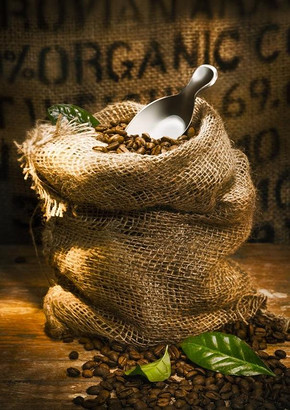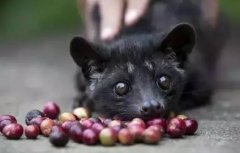Guatemala Coffee Bean Roasting Method Flavor Description
Follow the caf é (Wechat official account vdailycom) and found that Beautiful Cafe opened a small shop of its own.
Antigua (Antigua) is also a famous producer of coffee. Antigua coffee beans are produced in Hacienda Carmona, where the best quality coffee is ELPulcal, which is not only of good quality, but also has a stronger flavor, richer taste and stronger tobacco flavor than other Guatemalan coffee beans. Every 30 years or so, the area near Antigua is hit by a volcanic eruption, which provides more nitrogen to the already fertile land, and plenty of rainfall and sunlight make the place more suitable for growing coffee.
Other coffee producers include San Marco, Oriente & Coban, Palcya, Mataquescuintia and LaUman in zacapa. The establishment of the Special Coffee Association means that the Government of Guatemala has begun to pay attention to high-quality coffee, and the efforts made for it will soon bear fruit.
Flavor: full-bodied, full-bodied and attractive, it is one of the varieties with strong sour taste, mellow taste and slightly wild taste, which is most suitable for blending coffee.
Suggested baking method: medium, can also be deep baking

Guatemalan coffee
Guatemala (Guatemala) [Guatemala] coffee once enjoyed a reputation as the best quality coffee beans in the world, but the quality of coffee beans also declined for a time. What is gratifying, however, is that its reputation is gradually being restored.
In 1750, Father Jesuit introduced coffee trees to Guatemala, where the coffee industry was developed by German colonists at the end of the 19th century. Today, most of the coffee industry's production takes place in the south of the country. Here, the slopes of Sierra Madre volcano provide ideal conditions for growing high-quality coffee beans, and coffee growing at high altitudes is full of vitality. Compared with other kinds of coffee, critics prefer this mixed flavor coffee with spicy flavor. The extra hard coffee beans here are a rare good coffee with full grains, delicious taste and balanced acidity. In addition, its giant coffee beans have attracted a lot of attention in Guatemala.
The coffee industry, which once boomed the country, still dominates the national economy. Unfortunately, the domestic political situation is not good for coffee growers. High output is usually a sign of a country's overall economic prosperity. However, coffee production in Guatemala has declined relatively, at 700kg per hectare, while that in El Salvador is 900kg per hectare and that in Costa Rica is even more astonishing, at 1700 kg per hectare. The export of Guatemalan coffee is controlled by private companies, but the National Coffee Council (Asociacion Nacional de Cafe) controls other sectors of the coffee industry. At present, some of the best quality coffee from Guatemala is exported to Japan, where each cup of coffee sells for $3Mu4.
Most small-scale producers are descendants of the Mayan, who like to be called locals. Currently, they are also benefiting from a U.S.-funded project, known locally as The Project, which plans to invest $2.5 million to encourage the opening of small, high-quality coffee plantations. The main areas rich in high-quality coffee in Guatemala are Lake Attilan (Lake Atitlan) and Huehuentenango. The purpose of the project is to help overcome the vicious cycle of high yield and low quality that afflicts the world coffee industry. For example, Bourbon trees grow taller and produce fewer beans than the new dwarf trees, and although they all belong to Arabica coffee varieties, bourbon trees produce better beans and are more popular with gourmets. The project also hopes to encourage local producers to process their own coffee beans, as most coffee fruits are now sold to middlemen, and if coffee processing can be done in local factories, its value and even quality may be improved.
Important Notice :
前街咖啡 FrontStreet Coffee has moved to new addredd:
FrontStreet Coffee Address: 315,Donghua East Road,GuangZhou
Tel:020 38364473
- Prev

2017 Incht Manor in Guatemala bid batch "Pandora Pacamara" EI08-06
For the exchange of professional baristas, please follow the Coffee Workshop (official Wechat account cafe_style) 2017 Incht Manor in Guatemala bidding lot Pandora PacamaraEI08-06 Farm name: El Injerto Manor Certification: rainforest Alliance and CARBON NEUTRAL Award: COE won the first place (2008, 2009, 2010, 2012, 2012, 2012, 2012, 2012, 2012, 2015) 3rd (2014) 3rd
- Next

The truth of cat shit and animal abuse shows that ivory is hypocritical and bitter.
Professional baristas please follow the Coffee Workshop (Wechat official account cafe_style) recently it was reported in the newspaper that in response to an appeal from PETA Asia-Pacific, a five-star hotel decided to stop selling civet coffee (commonly known as Kopi Luwak), which was produced in an inhumane way, and once again aroused public concern about animal protection. PETA sends undercover agents into the farm.
Related
- Detailed explanation of Jadeite planting Land in Panamanian Jadeite Manor introduction to the grading system of Jadeite competitive bidding, Red bid, Green bid and Rose Summer
- Story of Coffee planting in Brenka region of Costa Rica Stonehenge Manor anaerobic heavy honey treatment of flavor mouth
- What's on the barrel of Blue Mountain Coffee beans?
- Can American coffee also pull flowers? How to use hot American style to pull out a good-looking pattern?
- Can you make a cold extract with coffee beans? What is the right proportion for cold-extracted coffee formula?
- Indonesian PWN Gold Mandrine Coffee Origin Features Flavor How to Chong? Mandolin coffee is American.
- A brief introduction to the flavor characteristics of Brazilian yellow bourbon coffee beans
- What is the effect of different water quality on the flavor of cold-extracted coffee? What kind of water is best for brewing coffee?
- Why do you think of Rose Summer whenever you mention Panamanian coffee?
- Introduction to the characteristics of authentic blue mountain coffee bean producing areas? What is the CIB Coffee Authority in Jamaica?

